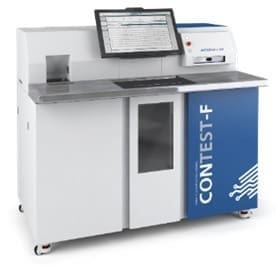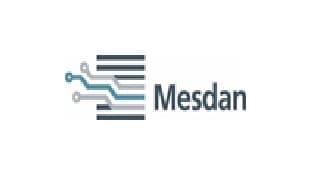If “sticky cotton” is not detected in time and properly handled, it can generate excessive maintenance costs in spinning, affect the production and compromise yarn quality.
There are several testing techniques for determining cotton stickiness: chemical, mechanical and thermo-mechanical methods.
In the latest findings of the ITMF International Committee on Cotton Testing Methods, in cooperation with CIRAD, Fiber Institute Bremen and ICA Bremen, one important conclusion has been outlined:
due to its highest correlation with processing behaviour and yarn quality, only thermo-mechanical methods are recommended (in both production and trade).
In fact, the high variation in stickiness within a sample, as well as within a bale and within a lot, makes the thermo-mechanical method suitably designed for daily massive testing, in a trading context as well as in the spinning mill, thus overcoming the constraints of other methods (chemical and physical).
Among different thermo-mechanical equipment used in the ITMF-ICCTM proficiency testing, the CONTEST-S results were proven to provide the lowest inter laboratory CV% variations.
In order to supply a solution to overcome the troublesome effects of cotton stickiness (honeydew/sugar content), Mesdan developed a specific testing method as an integral part of its CONTEST-S and CONTEST-F equipment.
The STICKINESS module is distinguished by:
- fully automatic high-volume testing equipment designed to detect, measure and classify cotton stickiness,
- its unique feature of simulating the carding process like in real spinning conditions provides a reliable evaluation of the effective stickiness (cotton fibres tendency to stick to cotton-processing surfaces),
- stickiness grade and cotton stickiness risk probability assessment enables spinners to anticipate proper actions (how to process & blend different cotton bales),
- fast testing (30 sec/sample) designed for massive stickiness classification of bales and lots (>500 tests/shift),
- testing method for stickiness grading recognised by ITMF – ICCTM.
 Mesdan is proud to announce that its Stickiness testing method has recently received an official and full recognition by the ITMF International Committee on Cotton Testing Methods (ICCTM) in April 2020. The ITMF-ICCTM committee members recognised its usefulness and its benefits for the complete cotton supply chain: it assists spinners to achieve consistent yarn quality standards, it sustains traders and cotton suppliers to monitor season crop, it provides grading for research laboratories and classification institutes.
Mesdan is proud to announce that its Stickiness testing method has recently received an official and full recognition by the ITMF International Committee on Cotton Testing Methods (ICCTM) in April 2020. The ITMF-ICCTM committee members recognised its usefulness and its benefits for the complete cotton supply chain: it assists spinners to achieve consistent yarn quality standards, it sustains traders and cotton suppliers to monitor season crop, it provides grading for research laboratories and classification institutes.
The complete document with all inter-laboratory evaluation details is available at the ITMF web site and can be downloaded at the following link:
https://www.itmf.org/images/dl/icctm/recognition/Recognition_MESDAN_20200429.pdf
The recognised testing method complies with the international standard EN 14278.
For more information: sales@mesdan.it www.mesdan.com

